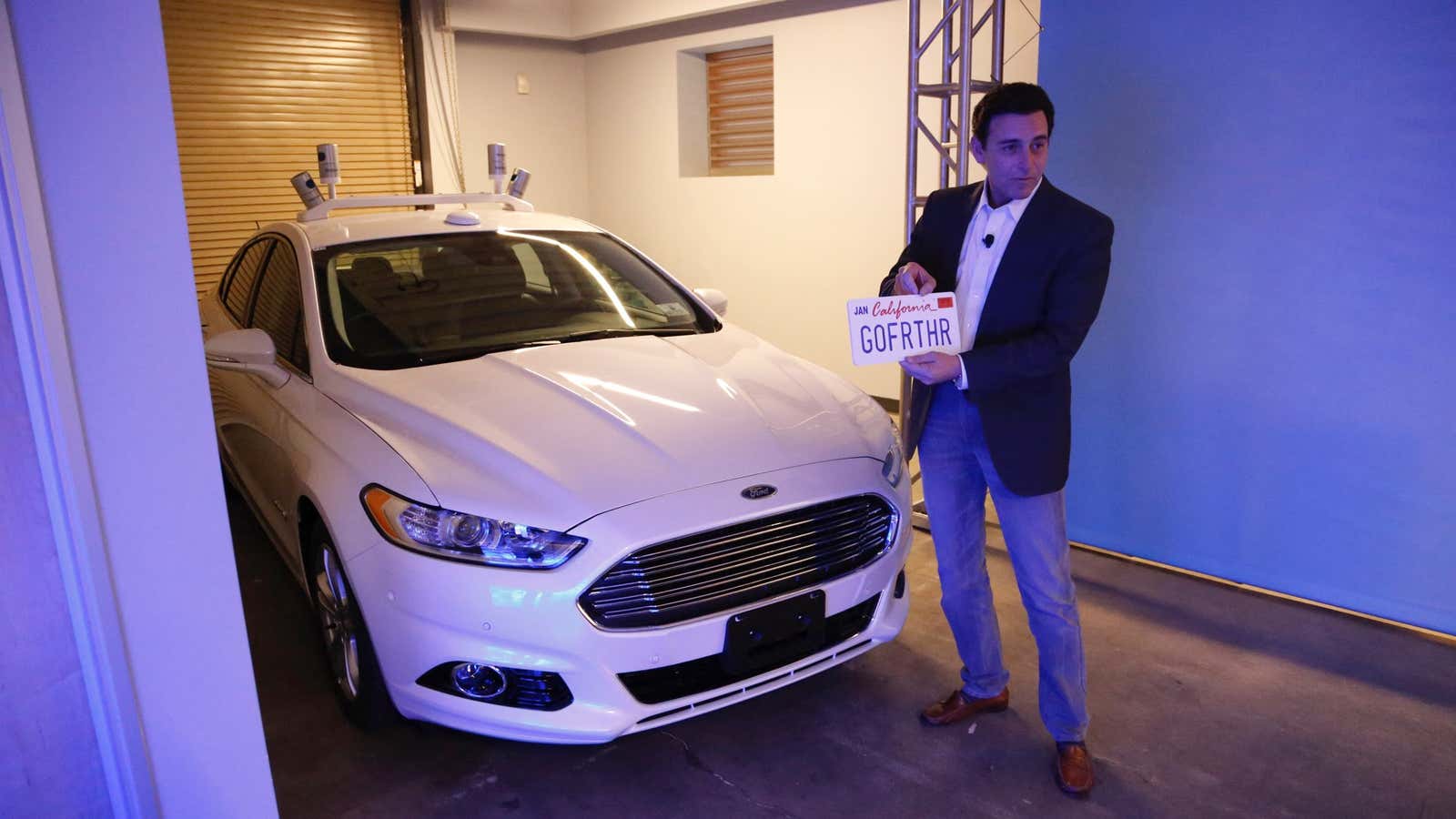Google wants to turn its research in autonomous vehicles into an independent business, and Ford may be the automaker to get it started. The two companies are in talks to build a fleet of self-driving cars, according to Auto News.
It’s unclear whether Ford would create a new and unique autonomous car design, like Google’s panda-shaped cars currently driving around Texas and California, or if it would would refit standard models. According to the report, Google and Ford could announce a partnership as early as next month’s Consumer Electronics Show in Las Vegas. Google has declined to comment, and Ford was not immediately available to respond to inquiries.
Both Google and Ford have recently ramped up their self-driving car efforts. In September, Google hired John Krafcik, the former CEO of Hyundai US—who also spent 14 years at Ford—to head up their autonomous vehicle research. Former Ford CEO Alan Mulally also joined Google’s board of directors in July.
Ford announced last week (Dec. 15) that self-driving versions of its Fusion cars will be tested on the streets of California next year. Ford’s current CEO, Mark Fields, has previously said that he believes fully autonomous vehicles will be on the roads within four years, and that they should be affordable—which Ford cars tend to be.
According to Yahoo Autos, Google and Ford may start a new joint-venture company, to be announced at CES. If that happens, Ford would get Google’s 1.3 million miles of self-driving experience data, and Google would get a company that has been building cars since 1903.
Bloomberg reported last week that Google is looking into building a self-driving taxi service—like Uber, but with robot drivers—so it’s possible Ford could be building the cars for this service. Yahoo Autos pointed out that Google’s deal with Ford is apparently not exclusive, which could open it up to work with the myriad other car companies working on self-driving technology.
Google’s reshuffling into Alphabet suggests the company is looking for new revenue streams beyond its traditional search and advertising businesses. The company recently announced it’s spinning out its life sciences research division into a new company called Verily. Other businesses, such as its internet-of-things Nest division, and Fiber, its broadband provider, have also been spun out as independent companies under the Alphabet umbrella.
It’s not clear yet what Alphabet will be doing with self-driving cars, or when it will be doing it, so for now, we’ll have to sit back and wait—much like we’ll be doing in our autonomous cars, should they ever arrive.
